#William Duer
Text
Who is the worst?
Round 1: William Duer vs William Whipple

William Duer (March 18, 1743 – May 7, 1799) was a British-born American jurist, developer, and financial speculator from New York City. A Federalist, Duer wrote in support of ratifying the United States Constitution as "Philo-Publius". He had earlier served in the Continental Congress and the convention that framed the New York Constitution. In 1778, he signed the United States Articles of Confederation and is one of the Founding Fathers of the United States.
Duer became a prominent speculator after the war; he was also elected to the New York General Assembly in 1786. When Alexander Hamilton, Schuyler's son-in-law, became first Secretary of the Treasury in 1789, Duer became the first Assistant Secretary. He continued to speculate in American bonds, including the failed Scioto Company scheme to buy up the American debt to France at a discount.
Duer went bankrupt as a result of the Panic of 1792, and was held in debtors' prison for the rest of his life. His failure has been cited as a cause of the panic, reportedly the first in New York caused by speculation. The loss was estimated at 3 million dollars and impoverished many in all classes.
William Whipple Jr. (January 25, 1731 NS [January 14, 1730 OS] – November 28, 1785) was an American Founding Father and signatory of the United States Declaration of Independence. He represented New Hampshire as a member of the Continental Congress from 1776 through 1779. He worked as both a ship's captain and a merchant, and he studied in college to become a judge. He died of heart complications in 1785, aged 55.
Whipple earned his fortune participating in the Triangle trade of the West Indies and Africa, with cargo such as wood, rum, and enslaved humans. He established himself as a merchant in Portsmouth in 1759, in partnership with his brother Joseph.
8 notes
·
View notes
Text
The Bunner siblings
A follow-up to this post that mentions Rudolph Bunner, the husband of Elizabeth Matilda Church.
Rudolph had one sister, Anna Bedford Bunner (1783-1864). SHE married John Duer (1782-1858), the son of William Duer (yes THAT infamous one; 1744-1799) and Catherine Alexander (1755-1826). Which means Elizabeth’s sister-in-law was married to 1) the son of her uncle’s most infamous former employee; 2) the great-nephew of William Livingston. (Here’s a link to a hilarious Livingston-Alexander family fight.) John Duer studied law at AH’s office in the late 1790s.
To finish this up, it’s easy to speculate that Rudolph (born 1779) was named after Lt Col Rudoph Bunner, who died at the Battle of Monmouth in 1778, but I have not found enough about the Bunner family to confirm how closely connected they were. The veteran was in the PA regiment, and young Rudolph was born in GA, and I cannot find out more about his father’s (George Bunner) family.
0 notes
Text

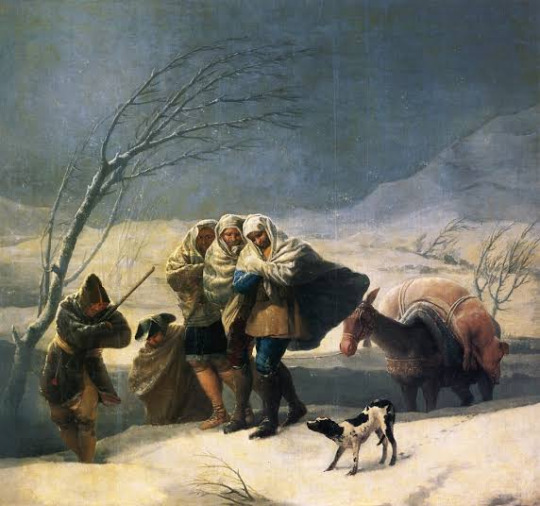

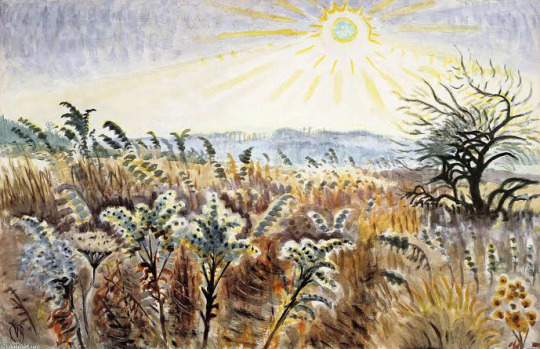





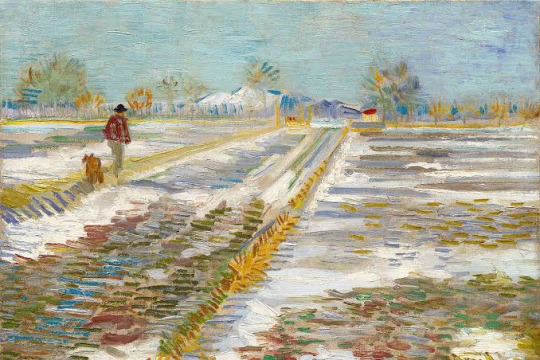

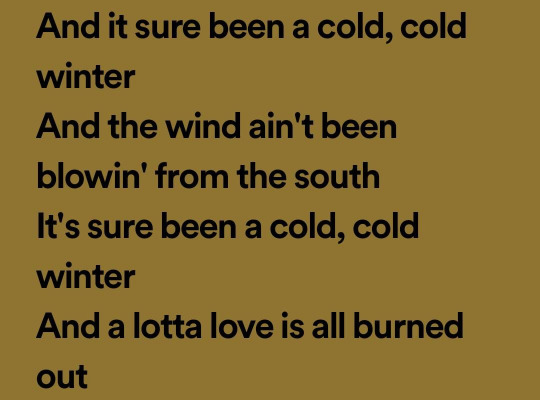



The White Cliffs, by Alice Duer Miller // The Snowstorm, by Francisco Goya // The Raven, by Edgar Allan Poe // Goldenrod in December, by Charles Ephraim Burchfield // The Chinese Nightingale, by Vachel Lindsay // Returning Home in a Winter Woodland, by Moras Walter // Zinaida Gippius // The Train in the Snow, by Claude Monet // Sonnet 97, by William Shakespeare // Landscape with Snow, by Vincent Van Gogh // A Teaspoon of Stars, by Chandrama Deshmukh // Winter, by The Rolling Stones // The Magpie, by Claude Monet // How Did It Get So Late So Soon? by Dr. Seuss // Screaming Through December, by Hall and Oats
#web weaving#december#the white cliffs#alice duer miller#the snowstorm#francisco goya#the raven#edgar allan poe#goldenrod in december#charles ephraim burchfield#the chinese nightingale#vachel lindsay#returning home in a winter woodland#moras walter#zinaida gippius#the train in the snow#claude monet#sonnet 97#shakespeare#landscape with snow#vincent van gogh#a teaspoon of stars#chandrama deshmukh#winter#the rolling stones#the magpie#how did it get so late so soon#dr seuss#quotes#art
27 notes
·
View notes
Text
Ok, so, serious question to all the experts out there.
Did Alexander Hamilton really have ibs? If so, what is the source of this info? If you say Ron Chernow, so help me...
There is a letter where Tench Coxe said Hamilton was ill with his "old nephritic complaint," which means kidney trouble, whereas ibs is in the gi tract.
6 notes
·
View notes
Text
On the King estate was a wild ravine where a stream known by the name “Awiehawken” dashed over a part of the famous duel ground, “which has been called the most interesting spot in the county of Hudson.” There handsome young Philip Hamilton in the dawn of his manhood fell by the hand of George Eacker three years before his father met a like fate from Aaron Burr. His second on that occasion was his cousin Philip Church, who had recently returned from England with his father, where he had been studying at Eton. These two grand-sons of General Philip Schuyler are said to have been strikingly alike in personal appearance, and their remarkable attachment, which led them to be seen constantly together, is one of the pleasantest memories in the annals of the society of the period.
Source — Mills, Weymer Jay. Historic Houses of New Jersey. United Kingdom, J. B. Lippincott, 1902.
I find this description interesting because it's one of the very few descriptions we get of Philip's appearance, aside the general elucidation of “handsome”, and Hamilton who once described him as having common, basic, infant attributes—Additionally, he was only eight months old, and any of these said features he very well could and likely did grow out of;
It is agreed on all hands, that he is handsome, his features are good, his eye is not only sprightly and expressive but it is full of benignity. His attitude in sitting is by connoisseurs esteemed graceful and he has a method of waving his hand that announces the future orator. He stands however rather awkwardly and his legs have not all the delicate slimness of his fathers.
Source — From Alexander Hamilton to Richard Kidder Meade, [27 August 1782], Founders Online, National Archives. [Original source: The Papers of Alexander Hamilton, vol. 3, 1782–1786, ed. Harold C. Syrett. New York: Columbia University Press, 1962, pp. 150–151.]
Also particularly because this edition was published in 1902, before Allan McLane made the grave mistake of titling William's painting as Philip's in 1910. [x] Which would then spur others to make the same mistake like Ron Chernow, and even Phillip Thomas Tucker, who wrote; “A healthy and handsome dark-haired son Philip Hamilton was destined to be born on January 22, 1781.” [x] The presumption of dark hair likely originating due to William's shaded portrait.
But at the same time, Weymer Jay Mill was born in 1880 in Jersey City, and died in 1939. So, he was hardly talking from firsthand experience considering this would have been a whole 79 years after Philip's death, and P. Church who died in 1861. He also doesn't bring up any source material to this particular claim, so it can only be defined as hearsay. Although his claim isn't entirely far-fetched as a whole, P. Church visited his Hamilton relatives often and did seem to be close with his similar namesake cousin. He was definitely close to his Uncle Hamilton, He also served as an Aide-de-camp to for him between 1798-1800, while he was Major General and Inspector General of the Army during the Quasi-war. And both he and his cousin Philip were part of a literature society. It was a Literature Society composed mainly of boys in their early twenties. It looks as though the members belonged to the same generational group, and were all rather acquainted with each other. A reappearing pattern being that; most of them were from New York, studied law, and graduated from Columbia in the 1790s.
About this time, Mr. Jones was a member of a literary society, (of which the late Peter A. Jay was president,) composed, among others, of Nathan Sandford, Charles Baldwin, John Ferguson, Jas. Alexander, Rudolph Bunner, Goveurneur Ogden, the first Philip Hamilton, William Bard, Wm. A. Duer, Philip Church, John Duer, and Beverley Robinson; of whom the last five are the only survivors.
Source — Jones, William Alfred. Memorial of the Late Honorable David S. Jones: With an Appendix, Containing Notices of the Jones Family, of Queen's County. United States, Stanford and Swords, 1849.
But I still have yet to see any claims that could be more solid about Philip looking similar to P. Church. Either way, it is interesting and could be plausible. Although judging by the common depictions of P. Church, I wouldn't consider that a compliment!

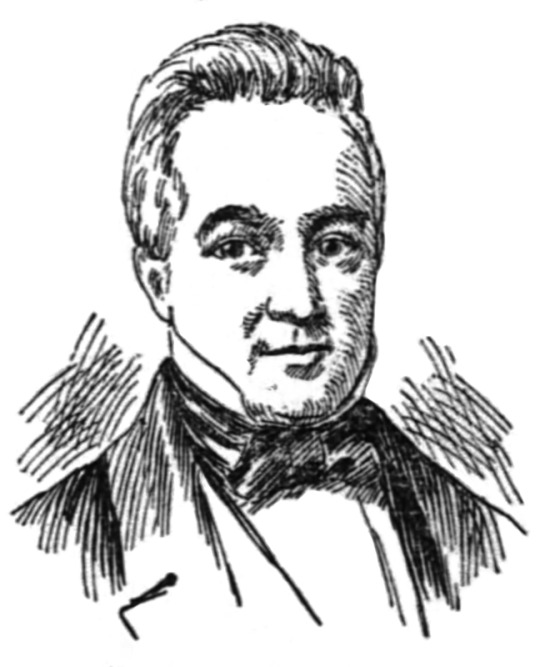
#amrev#american history#philip hamilton#philip church#history#hamilchildren#hamilton children#hamilkids#hamilton kids#hamilton family#cicero's history lessons
30 notes
·
View notes
Text

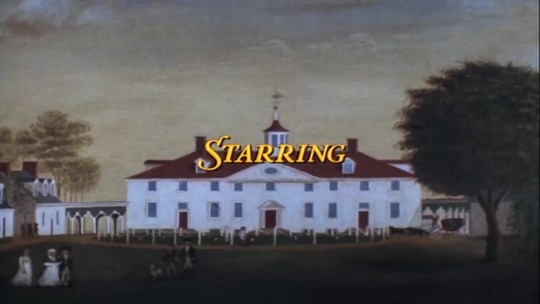

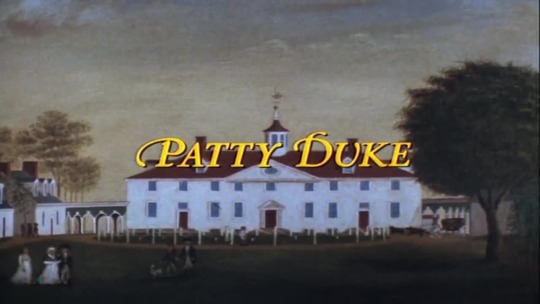
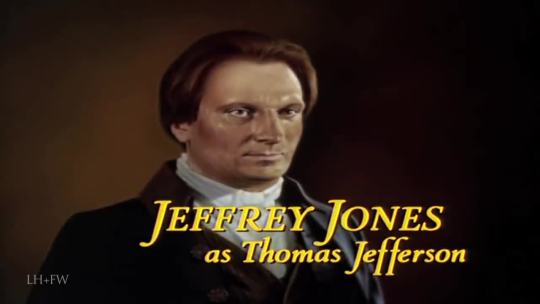


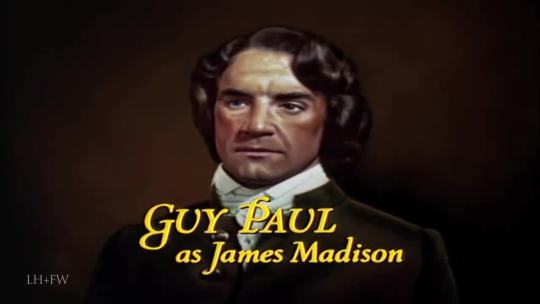
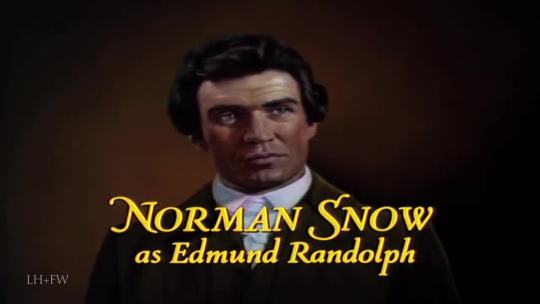
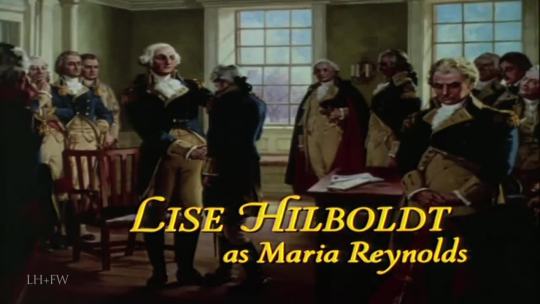
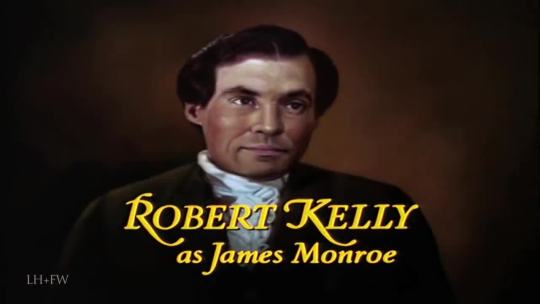




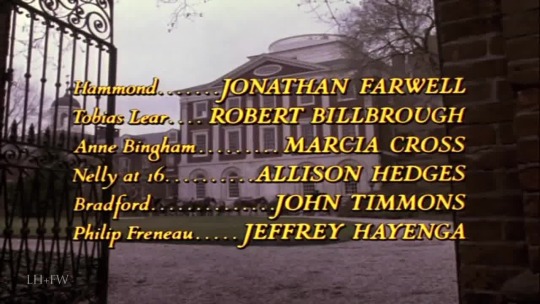
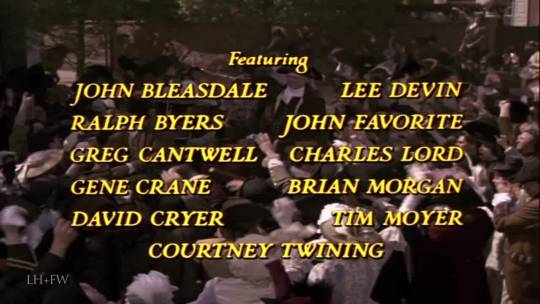

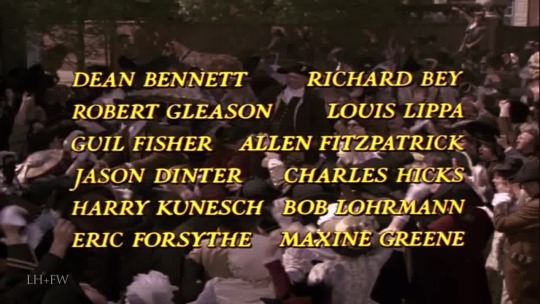

George Washington II: The Forging of a Nation - CBS - September 21-22, 1986
Historical Drama (2 episodes)
Running Time: 190 minutes
Stars:
Barry Bostwick as George Washington – Commander-in-Chief of the Continental Army, and later first President of the United States
Patty Duke Astin as Martha Washington – Wife of George Washington
Jeffrey Jones as Thomas Jefferson
Richard Bekins as Alexander Hamilton
Penny Fuller as Eliza Powel
Eve Gordon as Elizabeth Schuyler Hamilton
Marcia Cross as Anne Bingham
Guy Paul as James Madison
Norman Snow as Edmund Randolph
Robert Kelly as James Monroe
Lise Hilboldt as Maria Reynolds
Haviland Morris as Henrietta Liston
Daniel Davis as Patrick Henry
Richard Fancy as William Duer
Farnham Scott as Henry Knox
Nicholas Kepros as John Jay
#George Washington II: The Forging of a Nation#TV#1986#Historical Drama#CBS#Barry Bostwick#Patty Duke#Jeffrey Jones#Daniel Davis#Richard Bekins#Penny Fuller#Guy Paul#Robert Kelly
9 notes
·
View notes
Text



Monmouth Building Apartments
11619 Euclid Ave.
Cleveland, OH
On a corner in the Little Italy neighborhood of Cleveland, Ohio, just up the road from Case Western Reserve University, is a four-story white brick-and-stone apartment building with abandoned storefronts at street level and the name “Monmouth” chiseled into a stone entablature and carved again on the side of the building. What is the significance of the name Monmouth Apartments? Researcher Emily Spezia-Shwiff was trying to confirm a connection between the apartments and Monmouth, Illinois, tipped off to the possibility when she discovered a 1905 obituary of the apartment builder’s sister. Born in Ohio in 1846, Lucy B. Duer was the daughter of a stonecutter, who brought his family west to Monmouth when she was 12. Lucy entered Monmouth College in 1860 and became one of its earliest graduates, immediately becoming a schoolteacher in the Monmouth area, and for a time teaching at the college’s academy. She never married, and in 1895 moved to Cleveland to live near her sister, Margaret.
Maggie Duer was one of the earliest members of the Alpha chapter of Kappa Kappa Gamma, founded at Monmouth College in 1870. She became a teacher in Monmouth’s North Ward school in 1879 and spent the summer of 1881 in Cleveland, where she met William Fairchild Bulkeley, an up-and-coming young bookkeeper for the Cleveland Daily Leader newspaper. The couple was married in Monmouth that fall by Monmouth College President J. B. McMichael, and immediately left for Cleveland where they made their home. A native of New York state, William Bulkeley was the son of a noted minister and educator who brought his family to Cleveland in 1872. In 1889, he was made treasurer of the Daily Leader and he and Maggie soon found themselves fixtures in Cleveland society. Maggie also served as secretary of Cleveland’s Kappa Kappa Gamma alumnae association.
In 1899, William died at age 44, leaving Maggie to raise two young daughters. In 1915, for unknown reasons, Maggie decided to construct an apartment building on Cleveland’s Euclid Avenue, just a mile and a half from her own apartment in Cleveland Heights. Designed by Cleveland architects Steffens and Steffens, the steel and concrete building faced with pressed brick, terra cotta and stone trim cost $30,000 to construct—more than $800,000 in today’s dollars. Whether she named it in honor of the city of Monmouth, Monmouth College or both, may never be known. Margaret died in Florida in 1922 and is buried with her husband in Cleveland’s Lake View Cemetery. She had a younger sister, Anna, who was also active in Monmouth’s Kappa Kappa Gamma chapter, graduating from the college in 1879. Anna married Howard A. Pillsbury, a farmer in Cambridge, Illinois.
The Monmouth Building along Euclid Avenue and East 116th Street on University Circle in Cleveland, OH, was added to the National Register of Historic Places on June 27, 2022. On May 14, 2024, it was announced that a local company with much development experience intends to deliver 52 apartments and multiple retail spaces among two buildings — a historic structure and a new building up to nine stories high at 11619 Euclid Ave. in Cleveland’s University Circle. WXZ Development Inc. of Fairview Park intends to build the new mixed-use structure on a tiny parking lot behind a renovated, landmark Monmouth Building and is planning to invest nearly $15 million in the project.
0 notes
Text
Fraud Prevention Audit & Advisory Providers
Seeking reimbursement for substandard or incomplete products or services (e.g., performing much less weatherization work than funded or utilizing inferior weatherization products). Using Department funds for bills associated to another Federal agency or customer. Making unallowable or unauthorized purchases (e.g., use of Department funds for private luxurious gadgets or items outdoors to scope of the contract or grant). If you obtain a proposal that resembles any of these descriptions, it could probably be a scam. Scammers incessantly change their method, attempting new tactics and messaging to trick folks. We encourage you to remain up to date on the most recent news and advisories by following SSA OIG on Twitter and Facebook or subscribing to obtain email alerts.
The 18 and 19 centuries had their fair proportion of big fraud cases, together with the Mississippi Bubble, William Duer fraud bubble that nearly crashed the New York market, Ulysses S. Grant and Daniel Drew cases, and the 1929 inventory market crash. These fraud cases led the U.S. government to create the Securities and Exchange Commission. View which organizations have stood up and pledged to educate others about fraud. Predefined risk components permit the organization to form a regular set of metrics and rules. In this case, buyer information which is not anonymized could be stolen from an contaminated pc or through malicious code injected into a web useful resource.
Blogs November 17, 2022 Four Steps to Better Identify and Mitigate Fraud Steps an skilled forensic accountant will usually take while conducting a fraud threat evaluation to assist organizations mitigate fraud risk in susceptible areas. Blogs November 11, 2022 Tips to Identify and Mitigate Vendor Fraud Vendor fraud is the place a company’s accounts payable and other cost systems are manipulated for illegal private achieve. Proper procedures, training and awareness could be an efficient fraud awareness det… Blogs November 11, 2022 Tips to Identify and Mitigate Payroll Fraud This is asset misappropriation by way of theft of money by way of a company’s payroll processing system. Common types are ghost workers, buddy punching, and pay fee alteration. While challenging to combat, this blog offers several efficient tricks to mitigate. Articles November eleven, 2021 Understanding Vendor Fraud How vendor fraud perpetrators operate and when to seek the advice of a fraud expert.
Fraudsters are becoming ever extra refined, listed beneath are some suggestions that we hope will protect you online. To help maintain your cash secure and defend your cash, pleaseread our guide, which highlights the methods fraud awareness you possibly can shield your funds. Using Global Reach for your foreign money requirements means you can even make fast and efficient international money transfers to your trusted suppliers and contacts.
The compromise may be carried out by brute-forcing a user’s credentials in a state of affairs where two-factor authentication is not enabled and superior security settings, corresponding to a restrict of unsuccessful login makes an attempt, aren't in place. The gist of this manipulation is to access somebody else’s credit card knowledge and attempt to pay for goods and companies before the owner discovers the violation and the lack of funds. Several years ago, the makers of fraud prevention instruments focused on heading off malware. Similarly, staff of large companies or organizations are also typically focused, as CEO fraudsters know that these firms are inclined to have extra money and resources that they'll exploit. You ought to do this particularly when you’ve been denied credit score or been the sufferer of identification theft.
Upon his return, James spent 18 months working at a global environmental consultancy before joining Wilson Wright in September 2019, the place he has secured first-time passes in all exams thus far. He is the proper mix between born achiever and group improver. He obtained each his Law Degree and CTA Cum Laude and positioned Top 10 in his ITC board Exam. Today he is proudly a associate and director at Matswani Capital, a enterprise capital agency with widespread investments throughout fraud awareness numerous industries, starting from agro-processing, underground coal mining to bulk fuel distribution across Africa. This begins with leading by example in her day to day activities which incorporates leading her own engagement and project teams. Cihui is a Chartered Accountant and has over 9 years of public accounting experience together with 2 years with the Deloitte London, United Kingdom practice under the Deloitte Global Mobility Program.
The Federal Reserve supplies banking companies just for financial establishments. You ought to be wary of unsolicited e-mails, textual content messages, phone calls, or different communications alleging to be from or affiliated with the Federal Reserve. The Federal Reserve does not request private financial information similar to checking account numbers. Recipients mustn't click on on any hyperlinks or attachments contained in these type of e-mails and textual content messages.
Indices Comprehensive and correct benchmark and index coverage throughout asset courses. Workflow Products A suite of highly effective, end-to-end workflow products to help navigate the markets. Securities Trading Unrivalled entry to UK, European and world capital markets. To submit a referral or inquiry to the investigative employees of Prevea360 Health Plan, fill out this form fully.
0 notes
Text
trying not to laugh at the picture of william duer on wikipedia
14 notes
·
View notes
Text
Why’s everyone’s secretaries named William though? Ham, Jeff, and now Adams?
2 notes
·
View notes
Quote
I am sorry your convention do not feel themselves legally authorized to make examples of the villains they have apprehended. If that is the case, the well-affected will hardly be able to keep a watch on the ill. The general is determined, if he can, bring some of those in his hands under the denomination of spies, to execute them. General Howe hanged a captain of ours, belonging to Knowlton's Rangers, who went to New York to make discoveries. I do not see why we should not make retaliation.
Tench Tilghman to William Duer on October 3rd, 1776
Duer responded by saying “In the name of justice hang two or three of the villains you have apprehended. They will certainly come under the denomination of spies.”
When news of Nathan Hale’s death reached them at headquarters, everyone was angry and wanted to do something, but there was nowhere for them to channel their anger and they just were looking for excuses to hang someone. They were entirely willing to just invent evidence of spying activity by some of their prisoners just to gain some sort of retribution for Hale. They were prevented from carrying this out, however. Naturally, the same would happen four years later but with the roles reversed.
The letters that Tilghman wrote to Duer were in accordance with the request from the New York Provincial Congress that Washington assign one of his aides-de-camp to the duty of communicating to them daily anything worthy of note from September 22, 1776, until November 17th, 1776.
Tilghman’s acceptance of the task had the smoothest “You got my name wrong” correction I have ever witnessed:
You are pleased to call me Richard, but I have the honour and pleasure to be,
Yr. most obt.
Tench Tilghman.
It’s probably worth noting that Tench had a brother named Richard, which may have been where the confusion originated.
34 notes
·
View notes
Photo

william alexander duer, foto realizada através do daguerreótipo, eua
1 note
·
View note
Text
John Adams and Hamilton, briefly
A closer examination of Adams’s use of eighteenth-century moral philosophy, especially Smith’s The Theory of Moral Sentiments, reveals a striking and underappreciated originality in Adams’s political thought. As Luke Mayville has powerfully demonstrated, Adams’s preoccupation with aristocracy - and its malignant twin, oligarchy - in the Defense and Discourses reveals not a fondness for, but rather a grave fear of, oligarchic power in American society. While democratic republican reformers like Jefferson believed that America would weed out the roots of ancient and corrupt oligarchic institutions and cultivate the seeds of a truly meritocratic and virtuous elite, Adams was doubtful. According to Adams, the deep, social psychological roots of authority would give rise to a “natural aristocracy” not of the wise, talented, and virtuous, but rather of the beautiful, well-born, and wealthy. What is more, this national aristocracy would not only survive, but thrive if left unchanged, all to the detriment of the republic. Adams approached moral philosophy as more than an academic guide to the human psyche. He made it a crucial link between the “phenomena of social life and the problems of political power” that enabled him to advance a unique conception of oligarchy.
Adam Smith’s America: How a Scottish Philosopher became an Icon of American Capitalism by Glory M. Liu (2021).
[I may add to this post later, as I have been wanting to do a longer post summarizing/explaining why the Hamilton/Adams relationship was the way it was.]
To understand the differences between Adams and Hamilton, one first has to start with an understanding of the differences between the New England colonies, the Middle/Mid-Atlantic colonies, and the Southern colonies. (American schools start teaching about the differences between the colonies in elementary/middle school - so I’m not sure if the very crude summary that follows is even necessary - and there are entire books on this topic). These were separate societies. (Leaving out the Southern colonies) we have the Germans, Dutch, and English in PA/NY/NJ/DE vs the Puritan descendant Massachusetts colonists. The founders of these colonies were different groups of people: they differed economically, in religious beliefs, in the structure of society, in attitudes on a range of subjects, etc. A ‘tolerant’ society focused on profit - the Dutch traded weapons to the Native Americans that they in turn used to raid NE towns - vs the fiercely independent and religious communities of NE. A people who saw themselves in America seeking freedom (NE) vs disparate peoples in America seeking profit (Middle). NE did not have farmland that could support large agricultural operations - family farms were most common. In contrast, NY/NJ was governed by a slave-owning, Dutch and English aristocracy, heavily involved in trade of wheat (the breadbasket of N. America), fur and lumber for West Indian sugar. William Duer, who marries into the Livingston family, spent part of his early adulthood running his family estate in the West Indies; an entire branch of the prestigious Cruger family were NY-West Indian merchants. This latter group pushed Hamilton to the forefront of national politics.
The anger NEnglanders held against the Middle colonists for their interactions with Native Americans (the French and Indian War played no small part in hatred) and their bias based on moral deficits lasts straight through the AmRev - Albany was considered practically a den of sin by NE soldiers, who also, of course, were horrified to be under the charge of Philip Schuyler. One of the reasons for Schuyler’s removal as commander of the Northern Dept was exactly this political concern. When we read several accounts of Schuyler as aristocratic, this is NE bias at work, too, against a ‘Dutch’ large landowner, wealthy slave holder, and prominent trader of West Indian goods.
And then Hamilton enters the picture. Adams may have disliked him because he’s an upstart - someone who rose very quickly in the early national political scene through his support from and for the Dutch slave-owning aristocracy, while Adams labored for decades supporting the nascent country with a political philosophy he found far more principled - but there were also real differences in interests and philosophy. And AH did very little to reduce any suspicion. Hamilton seemed to have decided fairly early on that Adams was not of sufficient skill or integrity - and just plain did not share the same profit-loving beliefs - to play a major role in new government, so he undermined Adams, even when wholly unnecessary. (Not to say that Adams was particularly adept in his roles as V. President and President, either.) Adams regarded Hamilton’s economic plans as harmful to the poor (they were) and designed to further enrich the wealthy (they did). Adams absolutely recognized Hamilton for the warmonger he was.
Hamilton meddles almost immediately against Adams - ensuring that he’d get few electoral votes in 1789, when the election of Washington wasn’t even in question. He wanted Adams to lose the election of 1796, throwing his support behind Pinckney instead. With an aim of not disrupting the continuity the new nation experienced under Washington, Adams kept most of the same cabinet members, only to have AH use those members to run the gov’t behind Adams’s back. Let’s not even get into AH’s machinations during the Quasi-War. In a long list of ways, Hamilton was duplicitous towards Adams before outright challenging him. And then Hamilton had the nerve to claim a superior moral character to Adams in 1800 in his pamphlet shared with other members of the Federalist party. There was a lot of underhandedness going on from AH. This again is an example of Hamilton’s invincible belief in his own rightness.
That said, Adams had no extraordinary interest in Hamilton’s personal life beyond the fairly common staunch Calvinist point-of-view that a deficient family background brought about a deficient moral character, void of virtue and reason, and therefore unfit to lead. Nor was Adams singular in his concern about the talent, reason, and virtues - the character - of major political players - these concerns take up a lot of ink in this period of time because of the prevalent moral and political philosophies. Who should be leaders? Who should vote? To the extent that Adams shared the common Federalist belief that a natural aristocracy was composed of men reliant on reason and virtue, Hamilton, by way of his illegitimate birth in the West Indies, was never going to fit the ideal. And Hamilton certainly lived up (or down?) to that negative reputation of being primarily interested in benefiting the wealthy and the well-born, and then a confirmed adulterer. But Adams could be fairly publicly moderate with men with whom he held private disagreements (Franklin!). He even seems to have had a good opinion of Philip Schuyler, as I recall one of the things Adams wanted to do was to name Philip Schuyler and others holding the rank of General at the time of the end of the AmRev to positions of formal leadership in 1798-99, and was baffled at Hamilton elevating himself and all his cronies.
Once Hamilton was dead, Adams (who turned 70 in 1805) seemed to enjoy making up additional gossip about him - we have no record, for example, of anyone else stating that Hamilton was an opium addict. We also have no record of anyone else stating that Hamilton was having affairs with all his sisters-in-law. But Adams also wasn’t publicly publishing this stuff - it’s in his correspondence to select others.
All that said, Adams really should be more popular than Hamilton - Adams really was an anti-slavery Founding Father; though he was not an abolitionist, he offered them his support. He was closer to a political moderate (in modern parlance) than Hamilton. And he rightly identified the oligarchic plan that underlay the High Federalists’ vision, although he certainly wasn’t a populist, either.
There’s a lot more historical context than just personality differences between personages. And there’s a lot more understanding of political and moral philosophies of the time that is needed before speculating about the whats and whys of Adams’s behavior (or speculation about Washington’s reactions to additional speculation). Warning, lecture here: Folks have dedicated their professional lives to understanding some of these topics, and we need to show greater interest in what they have found and reframe our opinions accordingly.
This is horribly brief and reductive and I can already see the simplifications that will lead to errors, and I may expand on it later, but it gets some general thoughts down.
11 notes
·
View notes
Text
Ok I just finished the RevWar episode in the Washington miniseries and am on the next one. I have lots of thoughts! I'll add photos once my computer works!
- Elizabeth Powell, Maria Reynolds, and James Monroe? I came for a biography not a drama!
- Why does it start with horse breeding?!?!?!
- They're playing Hail Columbia so much <3333
- There's so much tension between Jefferson and Hamilton already
- James Madison is so wholesome yeahhhh fight the speculators!
- "William Duer an honorable man" - Alexander Hamilton. I am crying he is so wrong sjdjsjdjsjdj swindled idiot Hamilton.
- Hamilton is just getting shadier and shadier "If I pass this investigation will I be the one who is the villain."
- Madison and Jefferson are such besties I love it!
- Hamilton: "Are you alright?" Washington: "yes" *collapses for the millionth time this series* Why does he always get to sick!?!? Poor Washington:(
- I like how Washington calls Hamilton "Alex," good son
- Jefferson: "Washington wants to talk to you" Hamilton: "I hate you" Jefferson: "shush please" Martha Jr.: ( 0_0)
- Fishing scene <3
- AU where Jefferson and Madison predict the Great Depression so they oppose a National Bank
- Jefferson and Madison: NOOOO STONKS!!!
- Awww at least they make Maria Reynolds sweet wait oh no now she is a simp :(
- Reynolds affair :((((((((( I like the theory that is just made up by James Reynolds and Hamilton
- Everyone hates Hamilton lol
- The Gay Trio II: hehehe sneaky we hate Hamilton
- Washington: "Hamilton and Jefferson, talk to me." Them: *fight*
- I love that Hamilton calls Jefferson a Caesar even though Hamilton's alias was Caesar
- Death threats to Hamilton <3
- Hamilton receiving his 3rd death threat in a week: I've been a naughty boyyyy
- Maria: Gaslight, Girlboss, Gatekeep (toxic type). This is the most toxic someone can get.
- Gay trio ii: Omg lol Hamilton is spiraling ehehehehe
- BETSEY!!!!!!!!!!!!!!!!!
- Ooooooooh Hamilton is in trouble
- They just are like "wow we didn't think that you were that bad"
- Jefferson is pretty chill :) also nice funny coat
- Monroe and Jefferson are great
- Monroe: "This could be our only chance destroy him" Jefferson: "Haha there will be many more"
- Washington: "Here Hamilton take apple" Hamilton: *throws*
- Hamilton is being so mean to his "dad" :(
- Poor Washington and the newspaper. Shut up Jefferson.
- The way the French people call each other "citizen" reminds me if people calling each other "comrade."
- Thank you Jefferson for urging neutrality
- They're being so mean to Washington >:( meanies. Democratic-Republicans being so mean and ignorant! No wonder why they had an electoral college, common people didn't know what was going on in the government!
- I love that when Washington comes they all leave in shame
- I love that both Jefferson and Washington give the French ambassador the death glare. I'm happy that Jefferson and Washington cam agree on that XD
#amrev#george washington#washington miniseries#alexander hamilton#thomas jefferson#martha custis washington#btw the gay trio ii is monroe madison and jefferson
80 notes
·
View notes
Photo
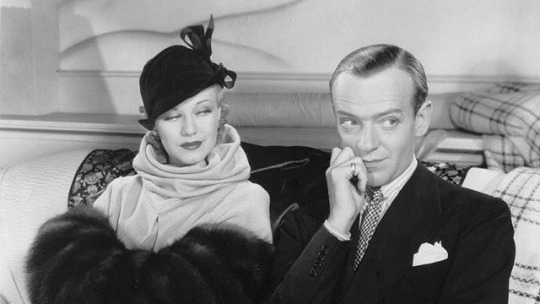
Ginger Rogers and Fred Astaire in Roberta (William A. Seiter, 1935)
Cast: Irene Dunne, Fred Astaire, Ginger Rogers, Randolph Scott, Helen Westley, Claire Dodd, Victor Varconi, Luis Alberni, Ferdinand Munier, Torben Meyer, Adrian Rosley, Bodil Rosing. Screenplay: Jane Murfin, Sam Mintz, Allan Scott, Glenn Tryon, based on a play by Otto A. Harbach and a novel by Alice Duer Miller. Cinematography: Edward Cronjager. Art direction: Van Nest Polglase, Carroll Clark. Film editing: William Hamilton. Music: Jerome Kern, Max Steiner.
If Roberta is less well-known than most of the Fred Astaire-Ginger Rogers movies, it's partly because it was out of circulation for a long time after 1945, when MGM bought up the rights to the film and the Broadway musical on which it was based, planning to remake it in Technicolor as a vehicle for Gene Kelly and Frank Sinatra. That plan fell through, and the actual remake, Lovely to Look At (Mervyn LeRoy, 1952) with Kathryn Grayson, Howard Keel, Red Skelton, and Marge and Gower Champion, is nothing special. But MGM's hold on the property meant that, unlike the other Astaire-Rogers films, it didn't show up on television until the 1970s. But it was also a kind of throwback to the first of their movies, Flying Down to Rio (Thornton Freeland, 1933), in that they weren't the top-billed stars of Roberta, and their plot is secondary to that of the star, Irene Dunne, and her leading man, Randolph Scott. It doesn't matter much: What we remember from the film are the great Astaire-Rogers dance numbers, "I'll Be Hard to Handle," "I Won't Dance," and the reprises of "Lovely to Look At" and "Smoke Gets in Your Eyes." Scott's inability to sing resulted in the big number for his character in the Broadway version, "You're Devastating," being cut from the song score of the movie. "I Won't Dance" was brought in from another Jerome Kern musical, and Kern and Jimmy McHugh composed that fashion-show/beauty-pageant classic "Lovely to Look At," with lyrics by Dorothy Fields, for the film, earning Roberta its only Oscar nomination. Except when Astaire and Rogers are doing their magic, the film is a little draggy, and Dunne and Scott strike no sparks. Look for a blond Lucille Ball, draped in a feathery wrap, as one of the models in the fashion show.
2 notes
·
View notes
Note
okay so i never fully remembered what my question was but!! i did remember that it had to do with philip’s social life or hobbies and so my new question is do we have any information on that? like if he had hobbies besides going to bars and not paying his bills or like who his friends were (besides price yk). i imagine there’s not much on this but anything helps!!! love you bestie <33
Philip seems to have taken notable interest in theater and literature. Both of his friends, Thomas Rathbone and Stephen Price had a considerable relation to theater. As Rathbone, one of Philip's old classmates, writes to his sister about his death;
At the theatre I was informed of it about 9 O'clock Monday evening - I immediately ran to the House near the State Prison from whence I was told they dare not remove him - Picture yourself my dear Girl my emotions which must have assailed me on my arrival at his room to which I was admitted as his old College classmate.
Source — Historical Magazine: And Notes and Queries Concerning the Antiquities, History, and Biography of America, Volume 1
Additionally, both Price and Philip were going to see the play, The West Indian by Cumberland, when they happened to encounter Eacker. [x] Stephen Price would also go on to be very influential to America's theater business, and became the founder of theater management.
Philip also enjoyed reading. At the young age of eight, he was already requesting books about geography;
I enclose for my little friend Philip a copy of the elements of Geography, which I mentioned.
Source — Tench Coxe to Alexander Hamilton, [10 July 1790]
He also seemed to have dabbled in poetry with Hamilton mentioning that Eliza would give him an Ovid, referring to the Roman poet, Publius Ovidius Naso, who is often ranked as one of the three canonical poets of Latin;
Your Mama has got an Ovid for you and is looking up your Mairs introduction.
Source — Alexander Hamilton to Philip Hamilton, [December 5, 1791]
Prior to his death he was also borrowing a book from the local library. [x] There is also the possibility of him being given his father's old books. [x]
When Philip was older, he was also part of a literature society. It was a Literature Society composed mainly of boys in their early twenties. It looks as though the members belonged to the same generational group, and were all rather acquainted with each other. A reappearing pattern being that; most of them were from New York, studied law, and graduated from Columbia in the 1790s.
About this time, Mr. Jones was a member of a literary society, (of which the late Peter A. Jay was president,) composed, among others, of Nathan Sandford, Charles Baldwin, John Ferguson, Jas. Alexander, Rudolph Bunner, Goveurneur Ogden, the first Philip Hamilton, William Bard, Wm. A. Duer, Philip Church, John Duer, and Beverley Robinson; of whom the last five are the only survivors.
Source — Memorial of the Late Honorable David S. Jones
Funny enough, there are a lot of familiar faces, and two of which would later assist Philip in his duel against George Eacker. David Samuel Jones, who was a 1796 graduate of Columbia College, would later help Philip convince his uncle John Barker Church to lend them his guns for the encounter and was one of his second's. Additionally, Philip's cousin also went there, Philip Church, who would also later be his second. Philip seems to have had a close relationship with his cousin Church, as Church was usually visiting the Hamiltons' and assisting his uncle Hamilton in Law or the Quasi-war.
Overall, Philip was quite “popular” and well-liked by many other boys his age, likely due to the importance of his surname. He was known for being very smart, gregarious, and handsome, with his charming rebellious side he appealed to plenty of adolescent men from his generation. The Evening Post considered him; “a young man of most amiable disposition and cultivated mind; much esteemed and affectionately beloved by all who had the pleasure of his acquaintance.” [x]
He seemed to make friends easily, other than just the previously mentioned Price and Rathbone, but also Washington's step-grandson; George Washington Parke Custis (Also known as Wash or Washy), who he attended school with for a period of time [x], they were also childhood playmates — as the Hamilton children visited the Washingtons' often when the two families lived in Philadelphia. Wash even wrote Hamilton a condolence letter after Philip's death, and in it he said; “We were brought up as it were, together in our earlier years and that mutual friendship which then existed between us, would I have no doubt have at a future time ripened into esteem.” [x]
There was also the small portion of time when Lafayette's son, Georges Washington de Lafayette, stayed with the Hamiltons' in 1795 while they awaited for conflict to die down so he could stay with Washington. [x] (Which actually brings up a funny story about Hamilton losing Lafayette's son) Georges and Philip were only three years apart in age, so it's imaginable they may have found each other's company agreeable. The only opposition being that Georges seemed in a state of despondency during his time with the Hamiltons' - likely missing his home country and parents - he was described as losing weight and being depressed, if not absent from their home and off with his tutor. [x] And later on he never wrote about his stay with them at all. So, I can't affirm it was a pleasurable experience for him, and there isn't any considerable evidence to suggest a friendship between the boys.
Another apparent interest of Philip's was traveling, and he traveled to Providence, Rhode island, and Philadelphia on his own during his youth. In a condolence letter, Rush says Philip was a charming guest at their residence during the last trip and says he made great friends with his son, who was likely Richard Rush since there was only two years difference between the boys;
It may perhaps help to sooth your grief when I add to that united expression of Sympathy, that your Son had made himself very dear to my family during his late visit to Philadelphia, by the most engaging deportment. His visits to us were daily, and after each of them he left us with fresh impressions of the correctness of his understanding and manners, and of the goodness of his disposition. To One of my Children he has endeared himself by an Act of friendship & benevolence that did great honor to his heart, and will be rememb[e]red with gratitude by Mrs. Rush, and myself as long as we live. My Son has preserved a record of it in an elegant and friendly letter which he received from him After his return to New York.
Source — Benjamin Rush to Alexander Hamilton, [November 26, 1801]
For even more options, there is a catalog of graduates at Columbia College which show the names of Philip's classmates. [x]
Hope this helps!
#amrev#american history#philip hamilton#stephen price#thomas rathbone#david s jones#philip church#george washington parke custis#georges washington de lafayette#richard rush#history#hamilchildren#hamilton family#hamilton children#hamilkids#hamilton kids#queries#pub lius#cicero's history lessons
21 notes
·
View notes